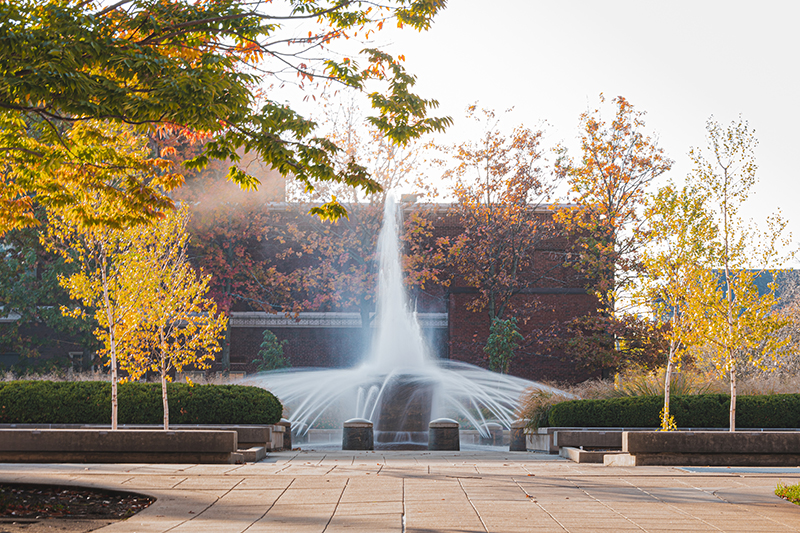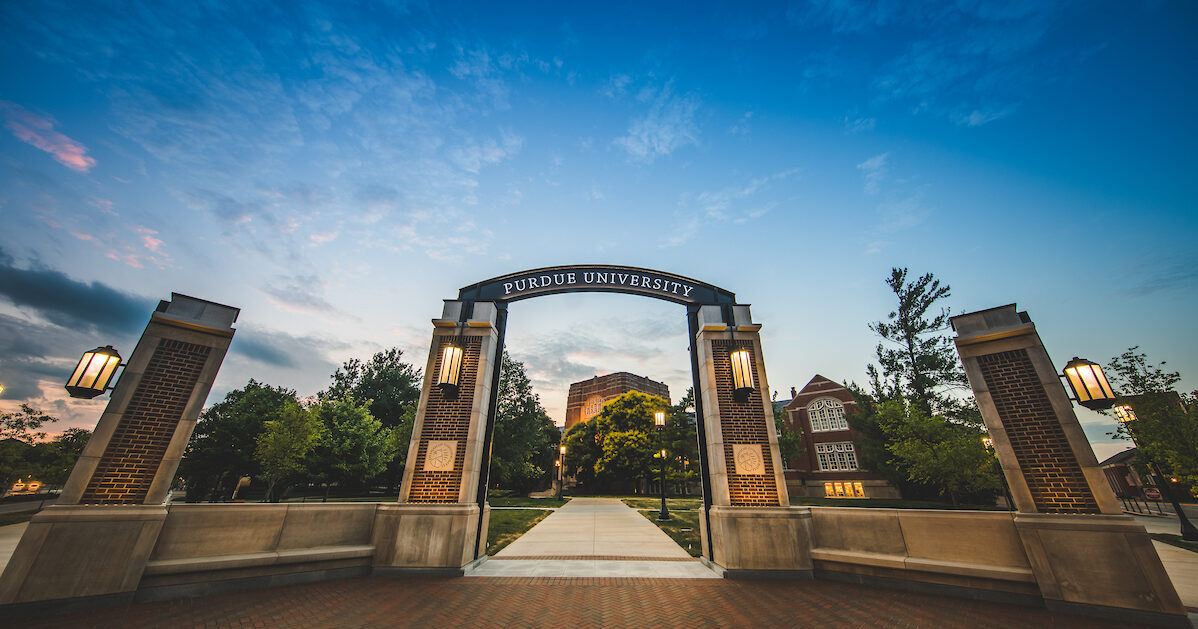Purdue increases funding, expands programs devoted to campus mental health and wellness services for students, staff, faculty
Staff and budget added for CAPS, DRC, Center for Instructional Excellence as part of effort by Action Council on Student Housing and Well-being

Purdue University continues to place greater emphasis on the mental health and well-being of its students, staff and faculty, creating and expanding services and programs while committing significant financial resources to foster a campuswide culture of safety and wellness.
Sparked by recommendations from the Action Council on Student Housing and Well-Being, Purdue is making the following commitments while advancing the university’s new “one-team” approach in fostering deeper and stronger collaborations between key campus units:
- Additional financial and human resources have been committed to expand campus mental and well-being services, led by Counseling and Psychological Services (CAPS), to address the growing needs of students as they pursue academic success and personal growth in this formative time of their lives.
- The offices of the Treasurer and the Provost have approved additional funding to expand support for students with disabilities. The Disability Resource Center (DRC) has added three access consultants, and Purdue Testing Services (PTS) has an additional staff member to improve accommodated testing support to faculty. A faculty accommodation consultant role also has been established within the Center for Instructional Excellence to assist faculty.
- With sponsor support from the Office of the Provost, the Purdue Graduate Student Government hosted a Mental Health Action Week this fall, and the Purdue Student Government and PGSG each will host Mental Health Action Weeks in the spring.
- Purdue teams from Administrative Operations, PSG and PGSG are coming together in collaboration with CityBus to study transportation options on and around campus.
“An investment in the mental health of our students is an investment in the future of Purdue,” says Patrick Wolfe, provost and executive vice president for academic affairs and diversity, and co-chair of the Action Council on Student Housing and Well-Being. “As a community of care, we all play an important role in supporting the holistic well-being and wellness of our students.”
Largely through the resources provided by CAPS, Purdue’s 2023-24 appropriation for mental health services has been increased by 27% from the previous year to $4.7 million. That amounts to an additional $1 million annual investment specifically for mental health and well-being services for the campus community.
“CAPS has enhanced resources, increased staffing, added flexible and accessible services, and expanded its campus-based prevention programming and partnerships,” says Beth McCuskey, vice provost for student life. “Our stepped-up model is being implemented to meet the continuum of care on our campus.”
In addition to an enhanced ability to be more responsive in offering 24/7 access to crisis services, the commitment through this additional financial investment means CAPS is 100% staffed for the first time in several years — giving the team greater capacity to respond to an evolving list of mental health and wellness needs ranging from anxiety, depression and academic struggles to eating issues, alcohol use and relationship concerns.
Through additional CAPS staff members, its staff-to-student ratio has been improved significantly, aligning with what is recommended by the International Accreditation of Counseling Services. CAPS, meantime, has doubled the size of its high-risk team the past three years while adding a psychiatric provider and nurse as part of its expanded staffing capacity.
Seeing a significant demand for its services, CAPS served more than 3,400 students during the 2022-23 school year. While down from the year prior, that figure represented an 18% jump from the 2,889 students served by CAPS in 2020-21.
During the 2022-23 academic year, Purdue students attended nearly 19,000 appointments through CAPS related to their mental health and well-being. Overall demand, meanwhile, reached 25,191 appointments requested — a figure that was up 10% from the 2020-21 period.
CAPS currently ranks among the top 4% of universities nationally for unique students served. At the same time, CAPS clients’ average change on what’s termed as an “Overall Distress” scale was in the 95th percentile compared with national benchmarks.
“We are committed to communicate to the Purdue community the availability of these resources as well collectively pledging to break down the stigma that often exists in making use of these resources for the betterment of the mental health and well-being of our students, faculty and staff,” McCuskey says.
Additional Information
Over the last 10 years, McCuskey says Purdue has seen a steady rise in the number of students requiring accommodations, reflecting a national trend. This growth not only underscores the diversity of the Purdue student body, but also highlights the importance of adapting support systems to meet the evolving needs of students.
To directly address this trend and reinforce a commitment to student wellness, the Office of the Provost and Office of the Treasurer have collaborated to approve funding to expand services for students with disabilities:
- A new faculty accommodation consultant in the Center for Instructional Excellence will be hired, a move endorsed by the DRC Faculty Advisory Committee and University Senate leaders. Once the position is in place, DRC course accessibility letters will include a direct link to the faculty accommodation consultant for 1:1 support.
- The DRC received funding for three new access consultants; Purdue Testing Services received funding for an accommodated testing staff member.
“By investing in these new staff lines, Purdue aims to enhance the overall learning experience for our students and alleviate some of the challenges faced by instructors in meeting the diverse needs of their classrooms,” says Jenna Rickus, vice provost for teaching and learning and the John Martinson Honors College. “Beyond improving student success, this initiative contributes to the ongoing development of a supportive and inclusive academic environment.”
This investment is more than just an increase in personnel, however, Rickus says.
“It is a strategic move to augment our capacity to provide support services. The additional staff will be embedded in Purdue Testing Services, the Disability Resource Center and the Center for Instructional Excellence,” Rickus says. “Through this collaboration, Purdue is creating a more efficient and responsive support system that benefits all stakeholders in the accommodations process.”
Responding to a Giant Leaps Housing and Dining Master Plan recommendation from the Action Council, Purdue trustees also have approved construction of an eight-story residence hall south of Hillenbrand Residence Hall to provide more opportunities for an integrated student life experience aimed at enhancing student success and wellness. Trustees also approved the renovation and expansion of Hillenbrand’s existing dining area from 500 seats to 800 seats.
Feedback and ideas are welcomed about how to work together on behalf of students, staff and faculty to meet the growing demand for mental health services and to be better equipped and responsive to this growing need not just on campus but also in our broader community.
“While we believe we are making these investments for all the right reasons, we acknowledge more can and will be done,” says Chris Ruhl, chief financial officer and treasurer, and co-chair of the Action Council on Student Housing and Well-Being.
Available Mental Health and Wellness Resources
We listened and responded to our campus by expanding the resources and support systems that address your physical and mental health and well-being.
A key new resource established in response to that call is Therapy Assistance Online (TAO). This free, confidential well-being program evolved from a commitment we made earlier this year to grow our investment in CAPS. Urgency and responsiveness are critical during a crisis, and TAO is available 24 hours a day, 7 days a week.
These campuswide efforts include the self-care tools that are part of the Steps to Leaps initiative, which is designed to bolster student success by offering tools, resources and support for all aspects of your life.
Here are additional resources available for addressing the health and well-being needs of all our students, staff and faculty:
- CAPS,Counseling and Psychological Services, has same-day or next-day appointments. Contact 765-494-6995 to make an appointment. There are no predefined session limits. Crisis services are available 24/7. Call 911 if your crisis is life-threatening. After-hours support is available by calling the CAPS main number and pressing 1.
- TAO offers self-guided resources including short videos, brief exercises and self-reflection tools to help overcome anxiety, depression, loneliness and other concerns and to assist with topics including social support, relaxation and problem-solving. To enroll, click on the link and log in using your Purdue credentials.
- PUSH, the Purdue University Student Health center, strives to keep you healthy and well. If it is right for you, consider getting a COVID-19 booster and/or flu shot. If you are sick or have a fever, get checked out! Delaying care can lead to worsening conditions.
- Recreation and Wellness provides our community with recreational and wellness activities that contribute to learning and the pursuit of an active, healthy lifestyle. This excellent resource offers exercise, fitness training, nutrition counseling, wellness coaching, a mindfulness space, financial literacy/Boiler Financial Track and, in general, an excellent social outlet.
- ODOS Student Support Services: Some students may not need to see a licensed clinician to feel better and/or supported. The Office of the Dean of Students is staffed with professionals who care deeply about students and their success. To speak with a student support specialist between 8 a.m. to 5 p.m. weekdays, visit the office on the second floor of Schleman Hall, and they can help.
- Student of Concern: Worried about another student? Report your concern through the Student of Concern Report.
Writer: Phillip Fiorini, pfiorini@purdue.edu
Contributing: Andrea Mattingly, thomas78@purdue.edu



